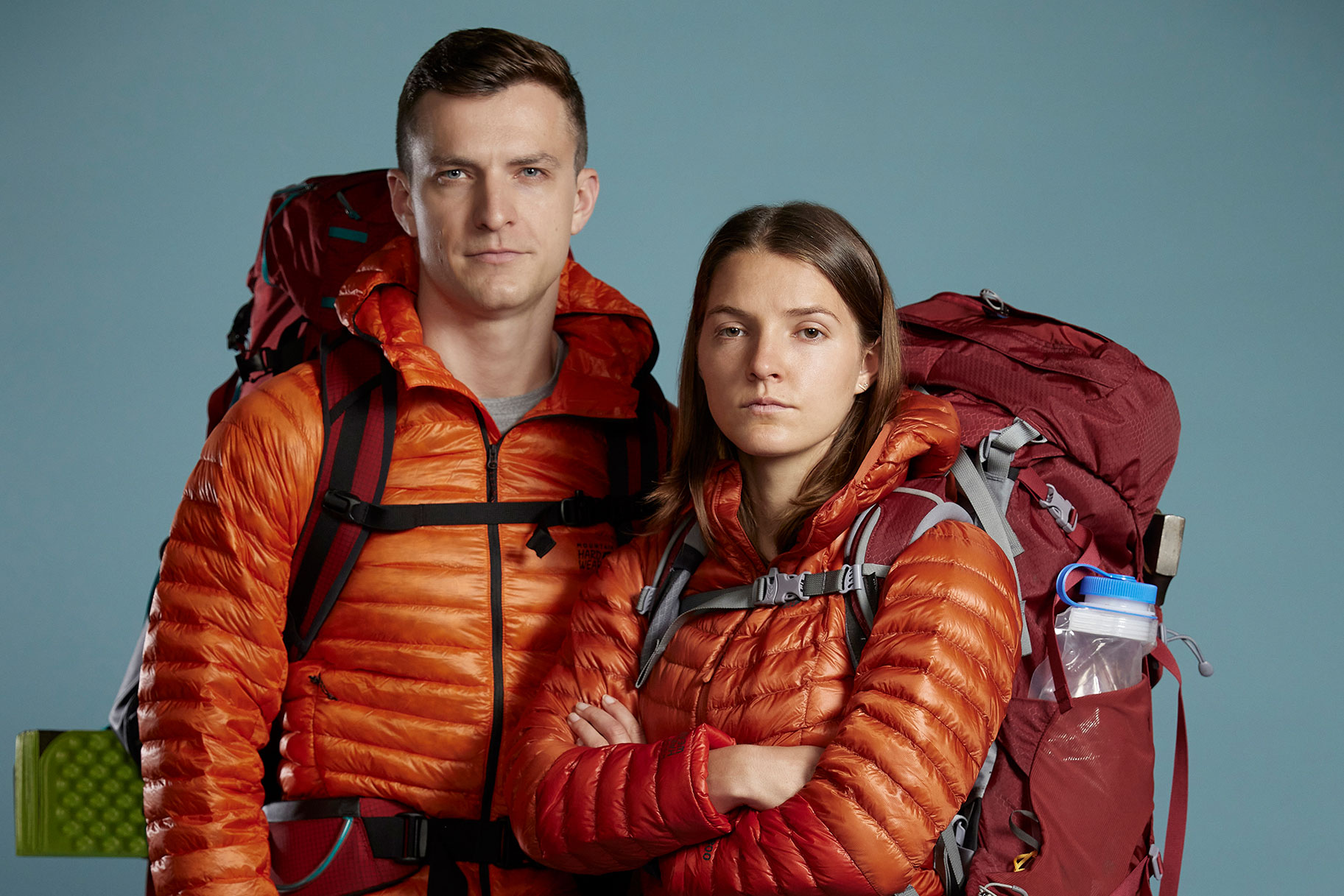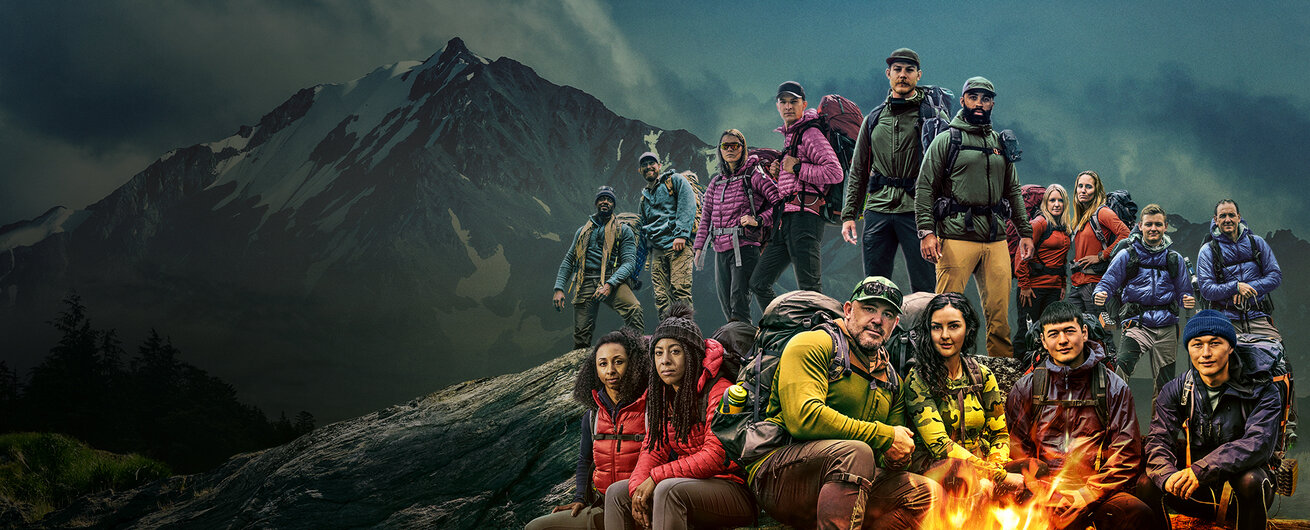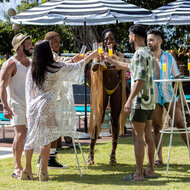Bella and Cason Reveal Their Biggest Lessons from Race to Survive: Alaska
The persistent and savvy siblings talk about how their third place finish was an accomplishment they never expected.

After overcoming everything Alaska had to throw at them in USA Network's competition adventure series, Race to Survive: Alaska, siblings Cason and Bella Crane surprised everyone — including themselves — by coming in third place at the end of the season finale episode, "The Last Medallion."
Of the eight teams in competition for the $500,000 prize, only 25-year-old Bella and 29-year-old Cason were not practiced adventurers. In fact, they both have corporate jobs in New York City and were inspired by their resilient mother to push themselves by applying for the show. Once cast, the pair initially employed a savvy, observational strategy to gain advice and skills from their more experienced peers. They took what they learned and put it into action.
RELATED: Everything To Know About The Race To Survive: Alaska Adventure Challenges
Their prowess consistently surprised not only frontrunner teams Max Djenohan and Christian Junkar and Oliver and Wilson Hoogendorn, but also Race to Survive: Alaska co-executive producer Alan Bishop. As an architect of the race course journey, Bishop told USA Insider that there were a couple of teams that made him particularly happy to have on the show, but just one team that he felt learned the most: Bella and Cason. "They were the team that I was like, 'This is just a joy to be able to watch them,'" he said.
What did they learn?
Now back in their normal lives as Brooklyn-based professionals, Bella and Cason told USA Insider that they were pleased to hear Bishop's assessment of their performance on the series. "That's really nice to hear because I felt like we underwent the most growth of any team there, in a positive direction," Bella shared. "I think we did take a lot out of it and we're really grateful for the experience. All the other teams that live in the outdoors, they all do this for a living, to some extent. For us, it was [a] very special opportunity because we are corporate, so we definitely made the most of it."
By the last leg of the race, Bella represented the last woman standing of the six that started 39 days prior, and Cason was the lone member of the LGBTQ+ community on the course. The pair said those distinct stats really only hit them when the race was over.
"I always thought of Cason and I as just competing against other teams in the way athletes often do. I never thought about the gender dynamic," Bella admitted. "But it happened that some of the female teams got knocked out early, which was actually a huge bummer on the social side. They were great to have in survival camp and had the best energy, so it was sad to be the only girl. Once the female teams left, it was a pretty stark difference in survival camp when it was just me and the guys. That culture shift was noticeable; there was just too much testosterone in the air," she said with a laugh. "It hadn't hit me before how that dynamic would be changed."
"And not just for Bella as a woman," Cason added. "It was a very, very hetero masculinity. I didn't love it either. But Bella is so right that we just thought of ourselves as another team. Bella was my teammate and I wasn't thinking of her as like, my 'female teammate,' though she is my sister."
With plenty of distance from that last race day to their return to normal, Cason said he can look back now and be most proud of how determined they were about pushing through and how much they grew as survivalists and adventurers.
"I went in really never having made fire," Cason shared. "I was trying to make fire on my Brooklyn apartment roof. So we didn't grow up as Alaskan fishermen, or grow up adventure racing basically professionally from age 10. We were so lucky to have a family that cared about athletics and adventure. But this isn't our careers. It's not what we spend most of our lives doing.
"But in addition to all the skills we were learning to be competitive, we were also trying to catalog the special moments," Cason continued. "Whether it was seeing the dolphins, or where it was great teamwork, or crushing a certain section of navigation or eating the blueberries, there's just these special moments and we tried to catalog them in our minds and share them with each other to stay grateful while we were out there. I think my feelings of gratitude have only grown stronger as the feelings of starvation have subsided."
Would Bella and Cason compete again and what are they up to now?
Both siblings continue to be active and look for new physical challenges. Bella does plenty of traveling and recently competed in a triathlon. Meanwhile, Cason continues to live it up in Brooklyn and regularly posts on social media about his life and his experiences on Race to Survive!
He summed it up best by pointing out that, ultimately, it was bonding with Bella that made the whole endeavor such a life-changing one.
"I feel so lucky to have had this unique experience with Bella," he said. "We're two of five [siblings]. We had, and have, a very close-knit family, so Bella and I were already close. We live five blocks apart from each other in Brooklyn. But we got even closer than I could have ever dreamed. I'm so grateful for that. Granted, I'm not sure I would want to be starving in the Alaskan wilderness for two months again. But I'm so glad we had the opportunity."
Watch Season 1 of Race To Survive: Alaska on USA Network and catch more survival shows on Peacock now.



